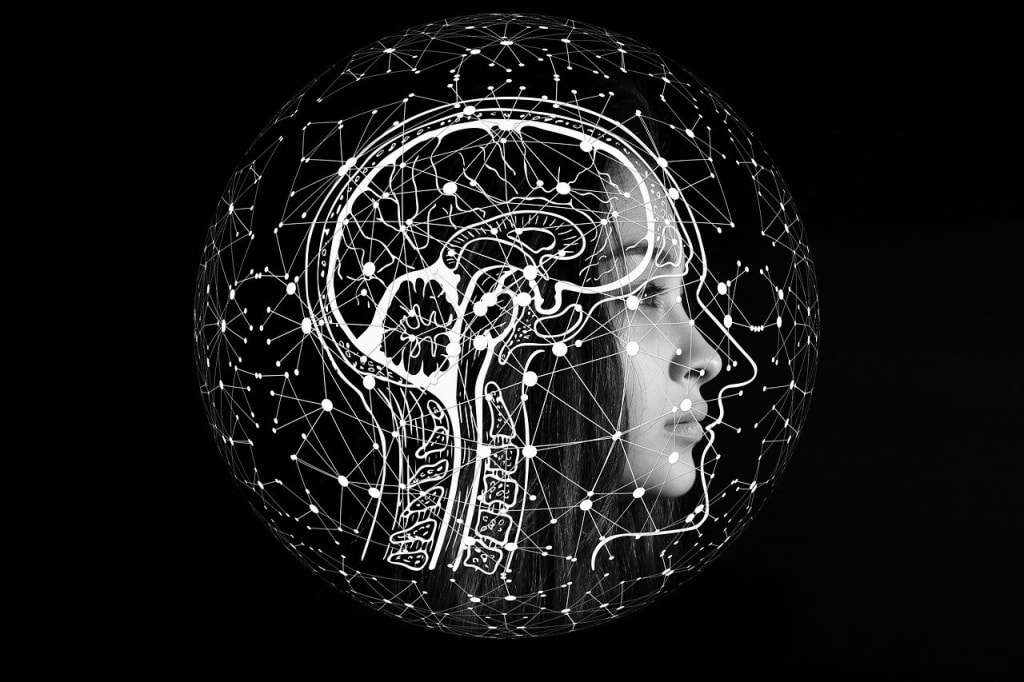Unmasking Brain Myths
Dispelling Misconceptions About Human Cognition

Introduction:
The human brain, an intricate web of complexity and wonder, has captivated the human imagination for centuries. Its enigmatic nature has led to a plethora of myths and misconceptions, some of which have persisted despite advances in neuroscience. In this exploration, we team up with Dr. Santoshi Bilakota, a Clinical Assistant Professor in Neurology at the NYU Grossman School of Medicine, and Dr. Brad Kamitaki, a Neurologist and Assistant Professor at Rutgers Robert Wood Johnson Medical School, to unravel these myths and reveal the truth about the human brain.
Myth 1: Brain Size Equals Intelligence:
It's often assumed that a larger brain indicates greater intelligence. However, this notion is far from accurate. Dr. Bilakota and Dr. Kamitaki clarify that brain size isn't the sole determinant of intelligence. Instead, the complexity and development of specific brain areas play a more significant role. For instance, while some animals possess larger brains than humans, their cognitive abilities are less advanced. Human intelligence is influenced by intricate factors such as the development of language centers, emotional intelligence, and social aptitude.
Myth 2: IQ Tests Accurately Measure Intelligence:
The duo deconstructs the popular belief that IQ tests provide a definitive measure of intelligence. They assert that intelligence is multifaceted, encompassing cognitive, social, and emotional dimensions. While IQ tests assess specific skills like verbal abilities and problem-solving, they offer only a partial glimpse into a person's overall intelligence. Factors like test conditions, mood, and educational background can impact test results, making a holistic evaluation of intelligence more complex than a single numerical score.
Myth 3: We Use Only 10% of Our Brains:
A myth ingrained in popular culture, the idea that humans use only a fraction of their brains is swiftly debunked by Dr. Bilakota and Dr. Kamitaki. Through functional MRI studies, it's evident that most of the brain is active throughout our daily lives. Various regions are engaged in different tasks and functions, debunking the notion of untapped potential. The myth's origins lie in a misinterpretation of early brain studies, now contradicted by modern neuroimaging techniques.
Myth 4: Video Games Rot Your Brain:
Addressing the concern that video games have adverse effects on the brain, the experts clarify that this myth lacks scientific basis. They highlight that certain video games, especially those involving teamwork, strategy, and problem-solving, can actually stimulate cognitive development. While moderation is essential, the idea that video games universally diminish brain function is debunked. The discussion prompts a deeper reflection on the effects of screen time and the potential benefits of specific game genres.
Myth 5: Memory Declines Inevitably with Age:
Dr. Bilakota and Dr. Kamitaki challenge the notion that memory inevitably deteriorates with age. They reveal that certain memory types, such as semantic memory (vocabulary and facts), can improve as people age. While episodic memory (recent events) may decline, it doesn't necessarily indicate pathology. Factors like lifestyle, diet, and cardiovascular health play a role in maintaining memory function, offering hope for healthy cognitive aging.
Myth 6: Stroke Prevention Is Impossible:
Dispelling the myth that strokes are unavoidable, the experts underscore the significance of preventive measures. High blood pressure, smoking, high cholesterol, and diabetes are recognized risk factors for strokes. By addressing these factors through healthy lifestyle choices and medical management, the likelihood of stroke can be significantly reduced. The importance of recognizing stroke symptoms and seeking immediate medical attention is emphasized, as timely intervention can save lives and mitigate lasting damage.
Myth 7: Left Brain Equals Logic, Right Brain Equals Creativity:
The notion that left-brained individuals are logical while right-brained individuals are creative is addressed by Dr. Bilakota and Dr. Kamitaki. They clarify that brain hemisphere dominance for certain functions, like language processing on the left side, isn't synonymous with personality traits. Creativity and logic involve complex interplays of various brain regions, and categorizing individuals as solely left- or right-brained oversimplifies the intricacies of human cognition.
Myth 8: Eating Fish Makes You Smarter:
While consuming fish rich in omega-3 fatty acids benefits brain health, it doesn't automatically heighten intelligence. The experts separate fact from fiction, highlighting the importance of omega-3s for heart and brain health. They emphasize the broader context of a Mediterranean diet, which incorporates fish and other nutrient-rich foods, contributing to overall well-being rather than solely increasing intelligence.
Myth 9: Trusting Your Senses Is Foolproof:
Dr. Bilakota and Dr. Kamitaki reveal that human senses aren't infallible. Illusions and sensory tricks demonstrate how perceptions can be deceiving. Factors like emotions, memories, and even cultural background can shape how individuals perceive the world around them. The discussion prompts reflection on the intricate relationship between perception and reality.
Conclusion:
As science continues to unravel the mysteries of the human brain, myths and misconceptions gradually give way to evidence-based understanding. Dr. Bilakota and Dr. Kamitaki's insights offer a nuanced view of brain function, debunking long-standing fallacies and illuminating the complexity of human cognition. In an era where knowledge is power, the pursuit of accurate information about the brain serves as a testament to human curiosity and the endless potential of scientific inquiry
Share your thoughts in the comments below. If you find this information intriguing, feel free to like and share this article with your friends. To satisfy your curiosity further, click on my profile to check out other articles and stay informed by my side.
About the Creator
Maureen Ejikeme
I'm a writer bringing you the most information on Mystery, Facts, News and Psychology.






Comments
There are no comments for this story
Be the first to respond and start the conversation.